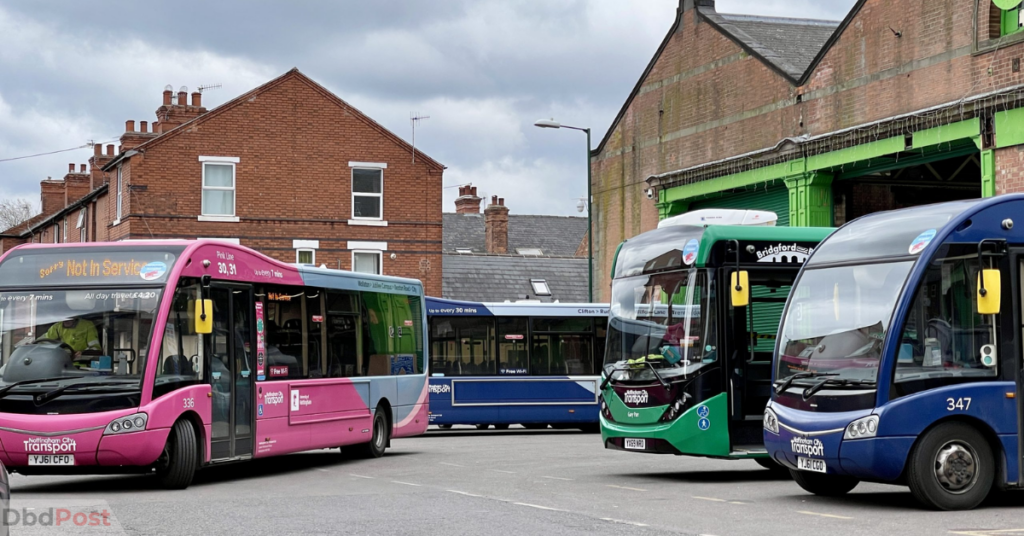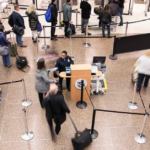Millions of bus passengers can breathe easier this New Year. On 1 January 2025, the government announced a decisive move: It will invest £150 million to maintain a £3 cap on single bus fares in England.
This policy helps people in cities, small towns, and rural communities. Riders faced an end to the previous £2 fare cap on 31 December 2024. Now, they will continue to enjoy affordable travel options.
Travelers who rely on buses can still head to work, attend medical appointments, and visit friends and family. They do not have to worry about sudden, steep fare increases. This initiative places buses at the core of local travel networks.
Government officials call this part of their Plan for Change. They want to reduce financial burdens on families and individuals and stimulate local economies.
Leeds to Scarborough stands out as a prime example. In 2025, passengers on that route could have paid £15. Instead, they will pay no more than £3, which saves them up to 80%.
Officials emphasize that this cap primarily targets routes that join the scheme. Operators can only raise fares by regular inflation if those fares range between £2 and £3. Meanwhile, local leaders in Greater Manchester and West Yorkshire intend to keep certain fares even lower.
Moreover, the government set aside £955 million to enhance bus service frequency and reliability. These improvements should reverse years of decline in bus usage. Officials say these funds will improve schedules and route coverage.
Commuters’ bus mileage has plummeted by about 300 million miles since 2010. Many blame a lack of accountability and aging bus fleets, while others point to reduced public funding.
Still, the government wants buses to remain the most used form of public transport. They see this as essential to community growth. Officials describe these steps as crucial for strengthening local transport services.
They also highlight the benefits for elderly travelers, students, and other groups without easy access to private vehicles. In isolated areas, bus services often form the only means of travel. Affordable fares keep people connected.
This announcement reflects broader changes. The government introduced the Bus Services Bill in Parliament on 17 December 2024. This legislation will give local authorities more power over their bus networks.
Local councils could create or franchise their own bus companies. This would allow them to set fares, timetables, and routes and guarantee services that meet local needs.
The Local Transport Minister Simon Lightwood says affordable buses spark growth. He notes that many people have limited travel options and stresses that this boost helps riders save money.
Furthermore, it encourages people to choose public transport. Frequent, affordable buses reduce road congestion and help lower emissions.
Many see the extended fare cap as a practical remedy to cost-of-living pressures. When bus fares remain predictable, families might stretch their budgets further. Parents often rely on bus services for school runs and after-school activities.
Officials also want to see buses compete more effectively with cars. They say quality bus services can become the default choice for short or medium-distance trips. This vision aims to make public transport more user-friendly, efficient, and green.
Greater Manchester’s Mayor, Andy Burnham, has pledged to maintain low fares in his region. Tracy Brabin, the Mayor of West Yorkshire, voiced a similar commitment. Both initiatives highlight the power of regional actions.
This approach grants local leaders the flexibility to respond to local priorities. They can tailor service hours and coverage and collaborate with local businesses and community groups to design routes that serve popular destinations.
Newcastle to Middlesbrough usually costs around £8, but passengers now pay only £3. These changes help keep bus travel competitive.
People living in Hull or York also see lower fares than expected. They often welcome the chance to save around 65% compared to regular prices, which allows them to spend more money in the local economy.
Buses also help reduce social isolation. Older adults use them to stay in touch with friends, and young people rely on them for college or weekend jobs.
Families find that budget-friendly fares allow them to plan day trips. They see them as a small break from daily routines, and tourism benefits when visitors can freely move around local attractions.
Officials believe these policy updates will halt the decades-long slide in bus ridership. They also hope to spark new interest in public transport planning. They see this as part of the larger national conversation about reducing carbon emissions.
Government Steps In To Keep Fares Low
Leaders described their £150 million investment as a game-changer. They reaffirmed their commitment to making public transport more inclusive and linked affordable fares to improved social mobility.
Under this new plan, local authorities gain momentum. They can pitch innovative ideas for bus routes or fare structures. They can partner with businesses to promote weekend getaways or nighttime services.
Local Transport Minister Simon Lightwood stated that buses provide opportunities. People count on them to get to medical facilities, and others rely on them for everyday shopping trips.
Moreover, he said the investment supports the Plan for Change and demonstrates the government’s stance on community-centered policies. He hopes that reliable bus services will remain a staple of daily life.
Operators in the scheme must keep fares at or below £3. This approach reinforces stable pricing. It protects travelers from sharp spikes.
The extension runs until the end of 2025. That schedule gives riders enough time to plan future journeys and gives local leaders a window to refine bus services.
Each region faces unique challenges. For some, the biggest hurdle involves connecting rural areas. For others, the focus is revitalizing city centers with better routes.
Residents in parts of England that rely on seasonal tourism appreciate this plan. They can keep travel costs low even during peak seasons. It helps businesses as well.
Looking Ahead: More Power To Local Authorities
The government’s ongoing Bus Services Bill could further transform travel. It aims to let local councils shape bus networks to suit local priorities, starkly contrasting the nationwide decline in bus coverage over the past four decades.
Private operators cut routes that did not yield enough profit in many places, leaving residents stranded. Now, they look forward to more comprehensive coverage.
Advocates say that local ownership can encourage better accountability. Officials can identify service gaps and introduce evening or weekend routes.
They can also offer fare discounts to groups like youth or seniors. This fosters more inclusive public transport systems and promotes equity in access to jobs, education, and healthcare.
The Bus Services Bill could further encourage creative ideas. Councils might add new routes serving large employers outside city centers and launch on-demand minibuses in smaller villages.
Meanwhile, the £3 cap continues to draw praise. People see it as a crucial measure in difficult financial times. It reflects the government’s belief in the power of public transport to lift local communities.
This plan and the extra £955 million to boost frequency strongly focus on enhancing connectivity. Reliable travel options can help reverse years of cutbacks and rebuild trust in public services.
Many await the final passage of the Bus Services Bill in Parliament. They see it as a step toward transforming Britain’s bus networks for good. It could unify local, regional, and national efforts.
Ultimately, the fare cap represents a milestone in making buses central to daily life. Officials want to end the trend of crumbling routes and uncertain schedules. They envision a more modern, reliable, and affordable bus system.
Some travelers still recall the days when buses were cheaper and more frequent. The new measures invite optimism and encourage more people to choose buses over cars.
At its core, the £150 million government intervention underscores a broader commitment to community-led progress. Bus travel is significant economically, socially, and environmentally. It is a key piece in building a fairer and more mobile society.
- 107shares
- Facebook Messenger
About the author
Andy Cale is a seasoned journalist and commentator with over a decade of experience covering global news and events. He specializes in delivering insightful opinions and in-depth analysis on current affairs, shedding light on the key issues shaping our world today.





